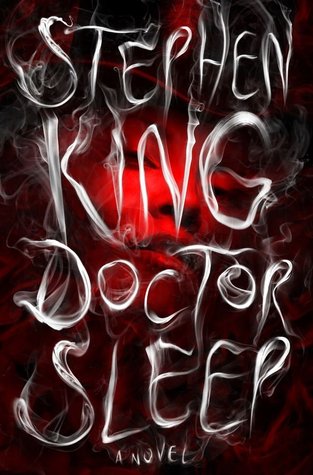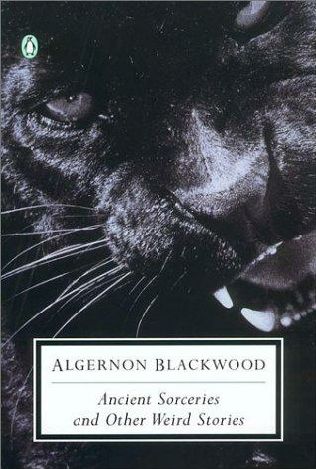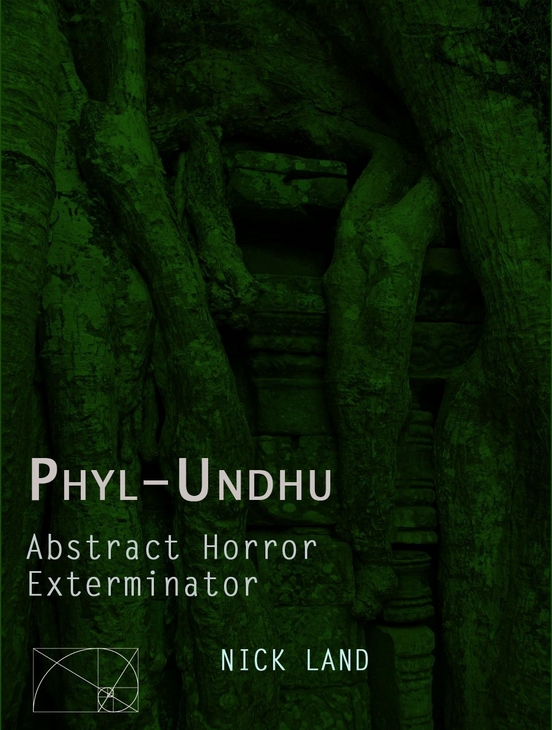 Doctor Sleep involves an ancient train running again. In a way that’s a metaphor for the whole thing. King’s seminal novel The Shining – first published in 1977 – finally has a sequel. Two questions arise: is Doctor Sleep a good book? And is it a good sequel to the Shining?
Doctor Sleep involves an ancient train running again. In a way that’s a metaphor for the whole thing. King’s seminal novel The Shining – first published in 1977 – finally has a sequel. Two questions arise: is Doctor Sleep a good book? And is it a good sequel to the Shining?
Let’s face it, The Shining is one massive locomotive. In a way, it’s not even a Stephen King creation. It’s now also a Stanley Kubrick creation, and a Simpsons creation, and a creation of every single person who’s adapted it, parodied it, referenced it, ripped it off, etc. The Shining is such a ubiquitous part of our culture that, ironically, we’ve destroyed much of its value as a horror novel. Getting scared by the Shining now seems like getting moved by “Luke, I am your father.”
Jack Torrance’s psychic son Danny has grown into a man haunted by events at the Overlook Hotel. He drifts around the country, drinking and getting into bar fights, until he joins Alcoholics Anonymous and finds work at a nursing home. There, he finally finds a positive use for his “shining” ability…comforting the dying as they pass over to the other side. People start to call him Doctor Sleep.
He also meets a young girl called Abra Stone, and realises that she has the most powerful “shining” ability he’s ever seen. She can levitate a piece of chalk and write messages on a blackboard miles away. She can potentially kill with her mind. Unfortunately, a shadowy group of individuals called The True Knot has also become aware of her abilities. The True Knot are like the Manson family mixed with vampires (a town called Salem’s Lot gets name-checked, by the way), except instead of blood, they feed on “shine”.
This isn’t the same kind of book as the Shining, which took place almost entirely at snowbound hotel. There’s lots of travel here, lots of movement from place to place (and time to time). That might seem like a small detail, but the first book got a lot of mileage out of its feeling of claustrophobia and confinement, and if that’s what you liked about the Shining, you won’t find it here. Doctor Sleep is The Shining with a drivers license and a lot of tollbooth ticket stubs.
There’s a lot more violence, but also a lot more humanity and character development. Again, that might be good or bad. What really worked about the The Shining was its coldness, and how it felt like Jack Torrance was losing his humanity. Here, even the villains unambiguously think they’re in the right, and they have fairly solid reasons for doing so.
Some parts really work. The early scenes with Danny and Mr Halloran, the deathbed scenes (I got strong nostalgia for the Green Mile reading Doctor Sleep), the way the True Knot are introduced. Other parts aren’t as strong…often because King suddenly starts trying to force connections to the Shining. Midway through the story he remembers “hey, didn’t Danny have an imaginary friend called Tony?”, and then we get Tony jammed into the plot so aggressively King might as well be using a shoehorn.
And there’s a few hideously boring scenes where we meet Abra Stone’s Italian family. This is the first time (from memory) that King has written an Italian family that isn’t made up of gangsters. Frankly, if this is the best he can do, he should go back to making us an offer we can’t refuse.
So does it work as a sequel? Maybe it’s better to ask, does it want to work as a sequel? Doctor Sleep is really its own thing, and it’s not bad for what it is. King’s been in gradual recovery mode since the early to mid noughties, and this continues the trend. You’ll find a lot to like here, if you’re willing to leave the Overlook behind.
 Ah, unrequited love. Boy signs his name on a love letter. Girl signs her name on a restraining order. I used to think that only humans experienced one-sided attractions, but lately I’ve realised that words do, too.
Ah, unrequited love. Boy signs his name on a love letter. Girl signs her name on a restraining order. I used to think that only humans experienced one-sided attractions, but lately I’ve realised that words do, too.
Sentences that mention Megadeth often also mention Metallica, but the reverse doesn’t apply: sentences that mention Metallica almost never mention Megadeth. One is far more famous than the other, so the attraction only flows one way. Likewise, sentences that mention The Hidden Fortress also usually mention Star Wars, but sentences that involve Star Wars almost never mention The Hidden Fortress.
This same rule applies to early 20th century weird fiction author Algernon Blackwood. It’s hard to find anything about him that doesn’t immediately compare him to HP Lovecraft. Perhaps not the strangest comparison in the world: they wrote about the alien, the eldritch, the unknowable. And they were both masters at keeping unspeakable terrors offscreen while not leaving the reader feeling cheated.
But Blackwood was different to Lovecraft. He wrote more ghost stories. He could be playful and mischievous. But most of all, his stories sometimes had a sense of quiet, unpretentious realism, as though he was writing about things that really could happen. His real life fascination with sorcery and the occult shines through in his fiction. When man is pitted against monster, Blackwood takes the side of the monster.
This collection has nine of Blackwood’s tales. “The Wendigo” and “The Willows” are very famous stories about brushes with the unknown. “The Man the Trees Loved” is a curious, whimsical offering – more similar to Lord Dunsany than anything in Weird Tales. “An Episode in a Lodging House” is about a renter using an ancient spell to bring down the boundary between worlds.
But my favorite two stories are two of the lessor known ones. “The Man Who Found Out” is a brilliant wind-up and release about a secret that causes anyone who learns of it to kill themselves. And the horrific “The Insanity of Jones” is about someone who begins to suspect that his boss murdered him in a past life. Both of these stories are tight, lean, and spellbinding.
Blackwood’s writing has aged well, and he’s well worth reading for reasons other than the fact that HP Lovecraft liked him. There’s more complete volumes of Blackwood’s stories, but this has enough to give a good introduction to his work.
 When you judge a book by its cover, you’ve got to be open to the chance of a mistrial. Phyl-Undhu’s title made me think it would be another attempt to stick electrodes on Lovecraft’s corpse and make him jump and dance for a few moments. Instead I got an extremely dense, detailed and scary story, with an excellent ending.
When you judge a book by its cover, you’ve got to be open to the chance of a mistrial. Phyl-Undhu’s title made me think it would be another attempt to stick electrodes on Lovecraft’s corpse and make him jump and dance for a few moments. Instead I got an extremely dense, detailed and scary story, with an excellent ending.
The story’s about a virtual-reality videogame that seems to take over peoples’ lives. Not through hypnosis or any sort of conventional addiction, but by being fascinating, confusing, and unsolvable.
None of the characters are sure how to beat it, they only know that they have to find “Phyl-Undhu”. The game is described as a massive environment that – like Stephen King’s Midworld – is both alien and very familiar. I liked Land’s invocation of apocalyptic size. That’s another nice touch often missed in horror stories about electronic games – a huge game like Skyrim can sometimes trick you into thinking it goes on forever, and that idea has a certain eerie power.
Playing the game occupies one corner of the story. The other corners are filled with philosophical fluff from Nick Land’s head, such as transhumanity, solipsism, and the “Fermi Paradox” (which questions why, in a universe replete with life’s building blocks, we’ve never seen signs of it anywhere except Earth). Many of these elements play into the larger story about the game, but in a way that doesn’t slow the momentum or drag things down.
The ending came and went, and it took a few moments for the full implications to sink in. I won’t spoil it, but it’s very, very good. Nick Land understands that a story’s end should NOT be the end, that it should take up residence in your mind and keep you thinking long after the pages go quiet.
I’m not very familiar with Nick Land, only knowing him as an “alt philosophy” person in the same category as Mencius Moldbug and Nick Bostrom. This is his first overt fictional work (as far as I know), although nothing he does can really be classified easily. In this case “futuristic philosophical horror” seems the closest fit, but it’s still a bad one. You’ll have to read for yourself.
 Doctor Sleep involves an ancient train running again. In a way that’s a metaphor for the whole thing. King’s seminal novel The Shining – first published in 1977 – finally has a sequel. Two questions arise: is Doctor Sleep a good book? And is it a good sequel to the Shining?
Doctor Sleep involves an ancient train running again. In a way that’s a metaphor for the whole thing. King’s seminal novel The Shining – first published in 1977 – finally has a sequel. Two questions arise: is Doctor Sleep a good book? And is it a good sequel to the Shining?

